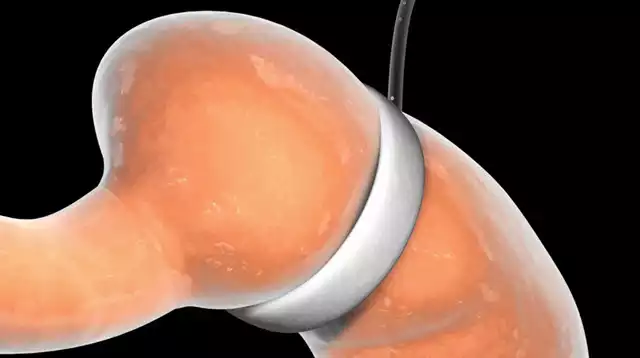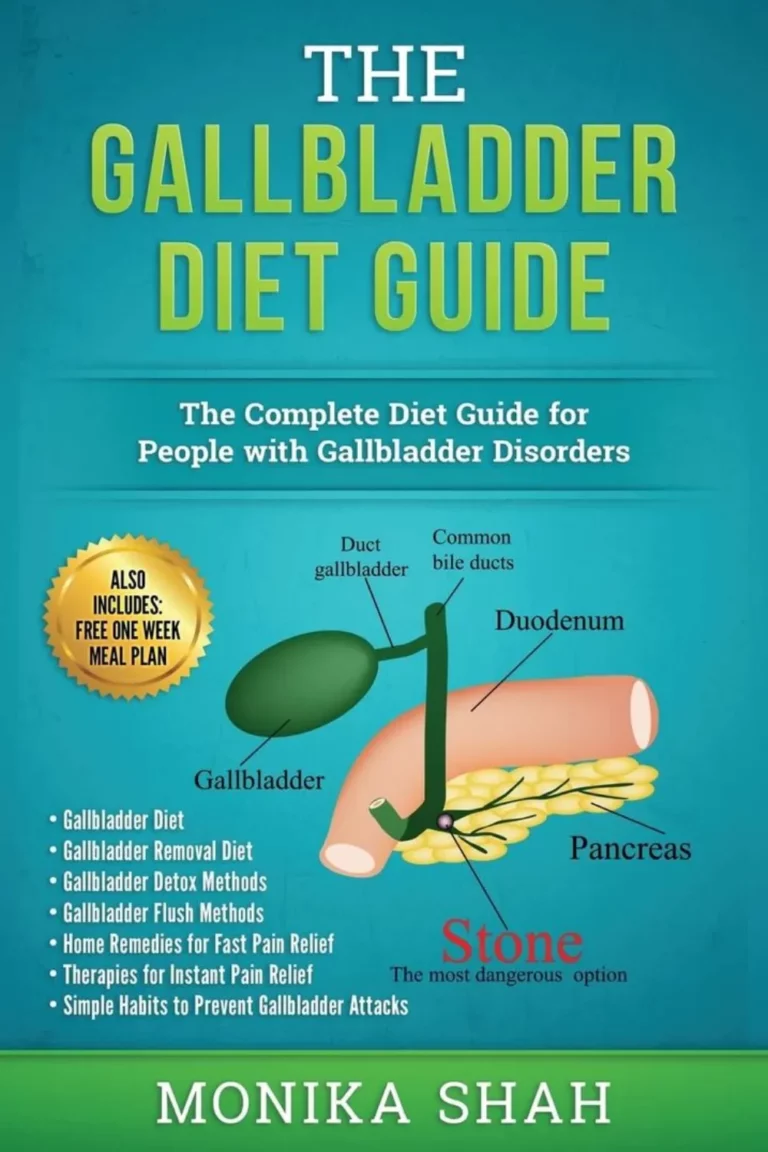Laparoscopic Gastric Banding Surgery, also known as Gastric Banding or Lap-Band surgery, is a minimally invasive procedure that has gained popularity in recent years as a treatment for obesity.
This surgery involves placing an adjustable band around the upper part of the stomach, creating a smaller pouch that restricts the amount of food a person can eat.
While Lap-Band surgery can be an effective tool for weight loss, it is not without its risks and potential complications.
As with any surgical procedure, it is important for patients to be aware of the potential risks and to thoroughly understand the procedure before making a decision.
In this article, we will delve into Navigating the Risks of Laparoscopic Gastric Banding Surgery and provide information on how to navigate these risks for a successful and safe outcome.
Whether you are considering this surgery for yourself or a loved one, understanding the potential risks and taking the necessary precautions is crucial for a successful and safe outcome.
Table of Contents for Navigating the Risks of Laparoscopic Gastric Banding Surgery
Preparing for the surgical procedure
In order to maximize the chances of a successful laparoscopic gastric banding surgery and minimize potential risks, thorough preparation is essential.
This begins with a comprehensive evaluation by a healthcare professional specializing in bariatric surgery, who will assess the patient’s overall health, medical history, and suitability for the procedure.
The patient may also undergo various tests and screenings to ensure they are in optimal condition for surgery.
Additionally, it is crucial for patients to follow any pre-operative guidelines provided by their healthcare team, such as abstaining from food and drink for a certain period of time prior to the surgery.
Adequate preparation not only helps to optimize the surgical outcome but also ensures the patient is mentally and physically prepared for the procedure and the subsequent changes that will need to be made in their diet and lifestyle.
Understanding potential complications
During the process of navigating the risks of laparoscopic gastric banding surgery, it is important to have a clear understanding of the potential complications that may arise.
While laparoscopic gastric banding is considered a relatively safe procedure, as with any surgery, there are inherent risks involved.
Some of the potential complications include infection, bleeding, blood clots, and adverse reactions to anesthesia.
Additionally, there is a possibility of complications specific to gastric banding, such as band slippage, erosion, or blockage.
It is crucial for individuals considering this surgery to have open and honest discussions with their healthcare team to fully comprehend these potential risks and weigh them against the potential benefits of the procedure.
This understanding will enable patients to make informed decisions and actively participate in their own care, ensuring the best possible outcomes.
Post-operative care instructions
Following your laparoscopic gastric banding surgery, it is important to diligently adhere to post-operative care instructions to promote a smooth recovery and minimize the risk of complications.
Your healthcare team will provide you with personalized instructions based on your specific needs, but some general guidelines may include:
- Pain management: You may experience discomfort or pain at the incision sites.
- Take prescribed pain medications as directed or use over-the-counter pain relievers recommended by your surgeon, if needed.
- Incision care: Keep the incision sites clean and dry.
- Follow your surgeon’s instructions for changing dressings or applying any necessary ointments.
- Report any signs of infection, such as redness, swelling, or drainage, to your healthcare provider immediately.
- Activity and mobility: Gradually increase your physical activity level as advised by your healthcare team.
- Walking is usually recommended to aid in your recovery, but avoid heavy lifting or strenuous exercises until cleared by your surgeon.
- Diet and nutrition: Follow the dietary guidelines provided by your surgeon or dietitian.
- This may include a gradual progression from clear liquids to pureed foods and eventually solid foods.
- Chew your food thoroughly and eat small, frequent meals to prevent discomfort and aid digestion.
- Hydration: Drink plenty of fluids, preferably water, to stay hydrated.
- Avoid carbonated and sugary beverages, as they can potentially cause discomfort or stretching of the gastric band.
- Medications: Take any prescribed medications as instructed by your healthcare provider.
- This may include medications to prevent blood clots or to manage any pre-existing medical conditions.
- Follow-up appointments: Attend all scheduled follow-up appointments with your surgeon to monitor your progress and address any concerns or questions you may have.
- Remember, every individual’s recovery may vary, so it is important to communicate openly with your healthcare team and follow their guidance.
By diligently following post-operative care instructions, you can enhance your healing process and increase the likelihood of successful outcomes from your laparoscopic gastric banding surgery.
Long-term effects on weight loss
The long-term effects of weight loss following laparoscopic gastric banding surgery can vary from person to person.
While the procedure can lead to significant weight loss initially, it is important to note that maintaining this weight loss over time requires commitment to lifestyle changes and ongoing support.
It is not uncommon for some individuals to experience plateaus or regain weight if they do not adhere to proper dietary and exercise habits.
Regular follow-up appointments with your healthcare team are essential to monitor your progress, make necessary adjustments to your band, and provide guidance on healthy eating and physical activity.
Additionally, it is crucial to address any underlying emotional factors or habits that may contribute to weight gain or hinder long-term success.
By actively engaging in a comprehensive weight management plan, including behavioral changes and ongoing support, individuals can strive for sustainable weight loss and improve their overall health and well-being.
Seeking support from healthcare professionals
Seeking support from healthcare professionals is a crucial step in navigating the risks associated with laparoscopic gastric banding surgery.
These professionals have the expertise and knowledge to guide you through the entire process, from pre-operative evaluations to post-operative care.
They can provide valuable information about the potential complications and risks involved with the surgery, as well as help you understand the necessary lifestyle changes needed for long-term success.
Healthcare professionals can also offer personalized advice and support, tailored to your specific needs and circumstances.
Whether it’s dietary guidance, exercise recommendations, or emotional support, their expertise can significantly enhance your weight loss journey and help you achieve sustainable results.
In conclusion, while laparoscopic gastric banding surgery has the potential to be an effective weight loss solution for individuals struggling with obesity, it is important to carefully consider and navigate the potential risks involved.
Working closely with a trusted medical team and fully understanding the procedure and its potential complications can help ensure a successful outcome.
As with any surgical procedure, it is important to prioritize your health and well-being above all else.
Ultimately, the decision to undergo laparoscopic gastric banding surgery should be made after careful consideration and consultation with medical professionals.
FAQ
What are the potential risks and complications associated with laparoscopic gastric banding surgery?
Potential risks and complications of laparoscopic gastric banding surgery include infection, bleeding, blood clots, band slippage or erosion, hernias, digestive issues, and in rare cases, injury to nearby organs.
Patients may also experience issues with the band itself, such as band leakage or malfunction, leading to the need for additional surgery or band removal.
It’s essential to discuss these risks thoroughly with a healthcare provider before undergoing the procedure to make an informed decision about the potential benefits and drawbacks of the surgery.
How can patients minimize their risk of complications during and after laparoscopic gastric banding surgery?
Patients can minimize their risk of complications during and after laparoscopic gastric banding surgery by carefully following their surgeon’s pre-operative instructions, maintaining a healthy lifestyle before and after surgery, adhering to the recommended diet and exercise regimen, attending all follow-up appointments, and promptly reporting any unusual symptoms or concerns to their healthcare provider.
It is also important to fully understand the procedure, potential risks, and expected outcomes before undergoing surgery to make informed decisions and reduce the likelihood of complications.
What should patients consider when choosing a surgeon to perform laparoscopic gastric banding surgery in order to minimize risks?
Patients should consider the surgeon’s experience and expertise in performing laparoscopic gastric banding surgery, as well as their success rates and complication rates.
It is also important to choose a surgeon who is board-certified and affiliated with a reputable medical institution.
Additionally, patients should ensure that the surgeon has a thorough understanding of their specific health needs and concerns, and that they have good communication skills to discuss the procedure and potential risks thoroughly.
Finally, patients should seek out recommendations, reviews, and testimonials from previous patients to gauge the surgeon’s reputation and quality of care.
What are some of the long-term risks and complications that patients may face after undergoing laparoscopic gastric banding surgery?
Some long-term risks and complications of laparoscopic gastric banding surgery include band erosion or slippage, inadequate weight loss, nutritional deficiencies, gastrointestinal issues like acid reflux or vomiting, and the need for additional surgeries for band adjustments or removal.
Adherence to dietary guidelines, regular monitoring by healthcare professionals, and lifestyle modifications are crucial in managing these risks and ensuring the success of the procedure.
How can patients best navigate the emotional and psychological risks associated with laparoscopic gastric banding surgery, such as body image issues and changes in eating habits?
Patients can navigate the emotional and psychological risks associated with laparoscopic gastric banding surgery by seeking support from therapists or support groups, practicing self-care techniques like mindfulness and meditation, setting realistic expectations, maintaining open communication with their healthcare team, and being patient with themselves as they adjust to changes in body image and eating habits.
It’s important for patients to prioritize their mental well-being throughout the recovery process and beyond.







